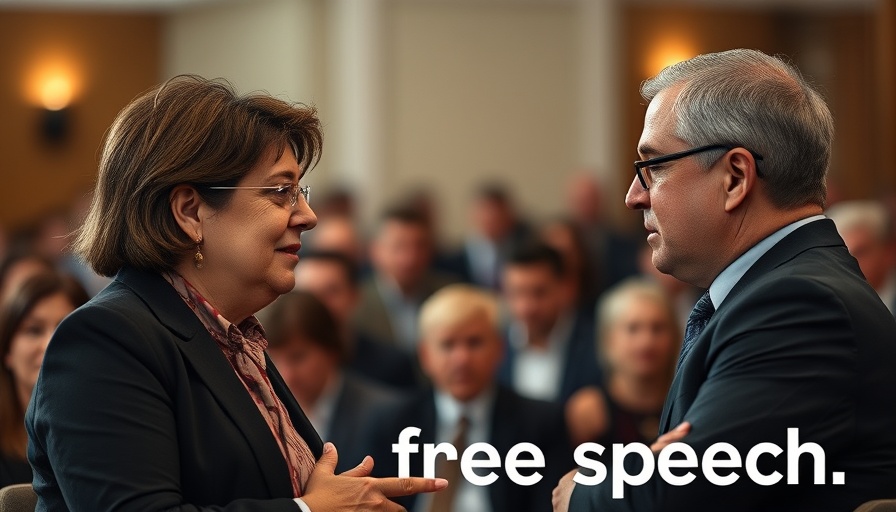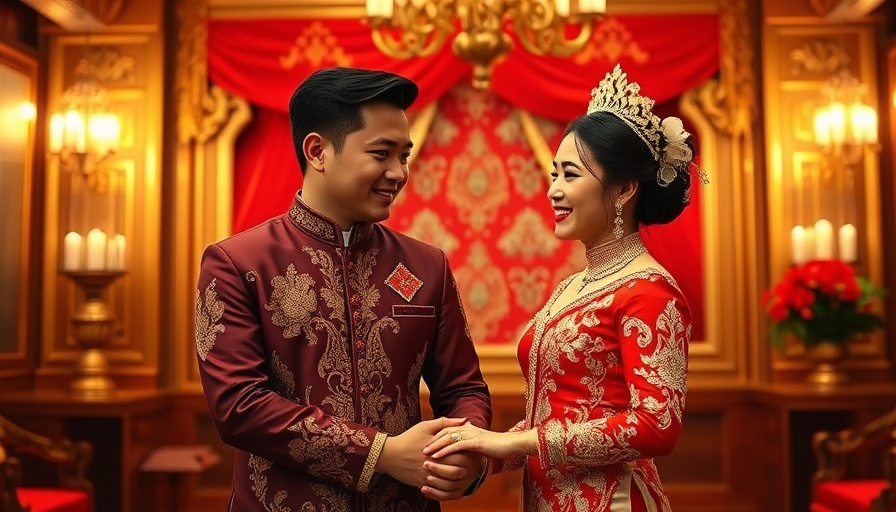
Why Free Speech in the West is Allegedly Dead
The recent discussion between Andrew Henderson and Glenn Greenwald sheds light on a disturbing perception: free speech in the Western world may be fading. Glenn Greenwald, a prominent journalist, suggests that while constitutional guarantees protect our right to express ourselves, societal and governmental responses contradict these protections. As he points out, individuals today face consequences, such as social cancellation or even legal repercussions, for expressing dissenting views. This raises an essential question: Are we mistaking the appearance of freedom for true liberty?
In 'Andrew Henderson and Glenn Greenwald on Free Speech in the West,' the dialogue explores critical insights into the state of free speech today, prompting us to consider the broader implications for individual freedom and societal structures.
The Illusion of Freedom
Many people view the United States as the bastion of free speech; however, Greenwald argues that this perception is misleading. The reality is marked by a rising tension around free expression, with government actions seemingly casting aside constitutional rights. Consider Julian Assange, who faces persecution in part due to his role in exposing uncomfortable truths. For some, this situation serves as a stark reminder that access to free expression is not a guarantee, even for citizens of democratic nations.
The Comparison of Global Freedom
Traveling the globe opens up a multitude of perspectives on liberty. Greenwald notes the dichotomy of living in a country with less vocal freedom but experiencing a happier, more peaceful day-to-day life. In locations such as Oman or Singapore, restrictive freedoms coexist with functional societal structures. As Henderson points out, people often have the choice to prioritize comfort and peace over the contentious environment of Western politics.
The Role of Media and Perception
The contemporary media landscape has also evolved, with corporate outlets presenting filtered narratives that can cloud public understanding. Greenwald's journey into journalism reveals that accessing original source documents allows for a more profound comprehension of issues affecting society. In a world filled with propaganda, being informed from various angles equips citizens to recognize potential biases in their information sources.
Diverse Perspectives on National Pride
Undoubtedly, the notions of national pride and exceptionalism play crucial roles in how citizens accept or challenge their government's actions. In the case of the U.S., Greenwald encourages a shift in perspective, arguing that acknowledging flaws in America’s policies, especially regarding foreign interference, is essential for progress. This inquiry into the desire for 'America First' reflects on broader implications for justice and equality worldwide.
Step Away from Cultural Insularity
The discussions surrounding free speech serve as a reminder that individuals must seek to understand the world beyond their borders. Greenwald emphasizes the need for intentional living—making conscious choices about where to reside and how to engage with society. For potential retirees or wanderers, this perspective encourages consideration of residency in countries that may not have the extensive freedoms of the West, but offer convincing arguments for a better quality of life.
Understanding the Risks of Poor Interpretation
Addressing misconceptions about freedom is pivotal for meaningful dialogue going forward. Critics argue that some prioritize the freedom of expression without acknowledging the nuanced nature of privilege and responsibility. As lively debates persist, understanding these dimensions becomes essential for finding solutions that represent both individual rights and societal well-being.
Engaging with the Conversation
In an era where many ponder the actual state of free speech and individual rights, the conversation initiated by the likes of Henderson and Greenwald serves as a catalyst for introspection. Their insights prompt audiences to consider the different freedoms across the globe and encourage thoughtful discussions about the implications for communities and individuals alike.
If you're a retiree or nearing retirement, now is the time to reflect on your lifestyle choices and options for living abroad. Consider the benefits of exploring new perspectives, especially in countries where you may find a balance that prioritizes happiness and peace over the fragility of 'fake freedom.' Embrace the opportunity to live more fully and intentionally.
 Add Row
Add Row  Add
Add 




 Add Row
Add Row  Add
Add 

Write A Comment